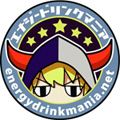Caffeine
Caffeine Content in Energy Drinks
Average Caffeine Equivalent to One Cup of Coffee per Energy Drink
Almost all energy drinks contain about 1 to 2 cups of coffee's worth of caffeine (80–160mg). Energy drinks are often thought to contain large amounts of caffeine, but in reality, the amount is generally not that high.
Fitness-Oriented Energy Drinks with High Caffeine
Since around 2018, high-caffeine energy drinks have risen in popularity in the United States, leading to a significant increase in the number of energy drinks with higher caffeine content. These drinks aren't the typical "cringe-worthy" products or those with an excessive amount of caffeine just for the sake of it; rather, they usually feature around 300mg of caffeine, as part of ingredients that aid in fat burning and improve athletic performance, marketed specifically for fitness.
Effects of Caffeine
- Wakefulness
- Fat Burning
- Vasoconstriction
Wakefulness and Staying Alert
The wakefulness effect from caffeine is one of the main reasons energy drinks are used for staying awake. Both Japanese and international energy drinks often promote their wakefulness benefits.
However, the caffeine content in energy drinks is generally around 80–160mg, which is only the equivalent of 1 to 1.5 cups of coffee. Whether they can effectively keep you awake is debatable. If you've experienced staying awake all night after drinking an energy drink, it was probably more of a placebo effect.
Energy drinks cost about 200 yen each, making them a poor cost-performance choice for staying awake. Drinking several cups of coffee or using caffeine tablets is a smarter option.
Fat Burning Effect
Caffeine is recognized for its fat-burning effects. Many fat-burning supplements abroad contain large amounts of caffeine, sometimes up to 300mg per dose. If you take this twice a day, you could be consuming a total of 600mg of caffeine.
There are also supplements that contain only caffeine, which are far cheaper than fat-burning supplements. Taking caffeine alone can still help with fat burning, so if you're aiming for fat loss on a budget, caffeine supplements would be a good choice.
Caffeine Safety
Daily Caffeine Intake
Caffeine is recognized as safe by food safety organizations such as the FDA (U.S. Food and Drug Administration), SCF (European Food Safety Authority), and FSANZ (Food Standards Australia New Zealand). Concerns about energy drinks being dangerous often focus on caffeine, but these safety assessments from global organizations are rarely mentioned in online articles.
According to Canada's Health Ministry, consuming 400 to 450mg of caffeine per day poses no health risks. Given that energy drinks contain 80–160mg of caffeine, consuming 2 to 5 cans a day would not be problematic.
Does Caffeine Accumulate in the Body?
Caffeine does not accumulate in the body and is naturally excreted within a few hours.
I was once surprised to see a misleading headline claiming that "caffeine accumulates in the body over time." But since caffeine is not stored in the body, there's no need to worry.
If you consume too much caffeine and experience symptoms of caffeine addiction, there’s no antidote, and the symptoms generally subside naturally over time.
The Trend of High-Caffeine Energy Drinks
In the past, there were reports about deaths linked to the caffeine in energy drinks, though no direct cause was established. This led to the temporary disappearance of high-caffeine energy drinks. However, since 2018, energy drinks like Bang, with higher caffeine content, have gained immense popularity, and major brands like Rockstar and Monster Energy have followed suit by launching new brands like REIGN.
It seems like the previous concerns about high caffeine content have been forgotten, as many high-caffeine products have flooded the market.
In Japan, even Aeon TopValu's Energy Hunter contains 195mg of caffeine per can, and other high-caffeine energy drinks are also available.
While the image of "intensity" or "impact" is an important factor for energy drinks, I do have some doubts about this trend, especially with top American brands increasingly offering higher caffeine options.
 Author: Energy Drink-kun
Author: Energy Drink-kun
In 2001, while living in the United States, I encountered energy drinks through the dance scene and was deeply impressed. After returning to Japan, I found that energy drinks were considered novelty beverages, so I established a comprehensive website in 2013 to share the true appeal of energy drinks. As an energy drink enthusiast, I began drinking them seriously again, collecting over 8,000 varieties of energy drinks from various countries. I am also active as a critic and expert, receiving media interviews.


 Since 2001, Energy Drink Maniac has been drinking energy drinks and providing the most detailed reviews of global energy drinks based on firsthand research.
Since 2001, Energy Drink Maniac has been drinking energy drinks and providing the most detailed reviews of global energy drinks based on firsthand research.